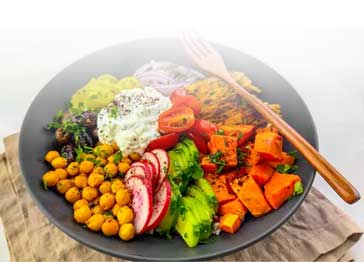A Jordanian Breakfast Tradition

In Jordan and many Middle Eastern countries, Fridays hold a special significance similar to Sundays in Western nations. My mother, a woman of routine, would strive to finish her household chores by 2:30 PM, allowing us to savor a leisurely family lunch and enjoy a classic TV show like “CHiPs.” Together, we’d unwind and relax, sharing laughter and stories.
Those days of peaceful family time seem like a distant memory. Today, our lives are filled with constant activities and obligations. Family breakfasts have become a rare luxury, replaced by rushed mornings and hectic schedules. We’re constantly on the go, leaving little time to appreciate life’s simple pleasures. It’s a reminder to slow down, take a deep breath, and savor the moments that truly matter.
A Mother’s Morning Ritual
My mother was an early riser, a habit that often drew teasing from the family. We joked that she could wake up even the neighborhood’s rooster. However, I now understand that her early mornings were a time for self-care. She would savor a peaceful cup of Arabic coffee and enjoy a moment of solitude before the hustle and bustle of the day began.
My father, ever the provider, would venture out early to return with a delightful breakfast spread. His culinary expertise never failed to impress, as he always managed to find the most delicious hummus, freshly made falafel, and a dozen warm, fluffy pita bread loaves from the local bakery.
A Friday Jordanian Breakfast Tradition
Friday mornings have held a special significance in our household. My mother would always prepare a delicious and elaborate breakfast, much to the excitement of my siblings and me.
One of the highlights of our Friday breakfasts was my mother’s homemade labneh, a creamy and tangy yogurt spread. We also enjoyed the classic combination of falafel and hummus. While I wasn’t a fan of foul, a dish made from fava beans, my siblings eagerly devoured it.

A Bountiful Friday Feast
Our Friday breakfasts were a feast for the senses. In addition to the traditional labneh, falafel, and hummus, we also enjoyed delicious omelets made with fresh eggs, onion, and parsley. Another favorite was chopped chicken liver sautéed with onion and garlic, topped with fresh parsley and a squeeze of lemon juice.
No Middle Eastern meal is complete without olive oil (zait) and za’atar. These two ingredients are a classic pairing, perfect for dipping warm pita bread. Add a slice of cucumber, tomato, and homemade pickled olives for an extra flavor. It’s a combination that’s sure to tantalize your taste buds.
A Legacy of Culinary Excellence
The women in my family were true culinary masters. They took great pride in their ability to prepare delicious and nutritious meals, and their dedication to their craft was truly inspiring.
My grandmothers, mother, and aunts never complained about their kitchen duties. They found joy and satisfaction in cooking and serving their families. I was always amazed by their ability to balance their passion for cooking with their other responsibilities.
They possessed a deep knowledge of seasonal produce, knowing when to buy and how to preserve it for later use. This skill ensured that our meals were always fresh and flavorful.
The Art of Preservation
Reservation was an essential strategy for ensuring a year-round supply of fresh produce. When fruits and vegetables were in season, my mother would purchase them in bulk and preserve them for later use.
For example, during the apricot season, my father bought several boxes of apricots, which my mother would transform into delicious jams and fresh rollups. Similarly, when green beans were plentiful, she would buy large quantities and preserve them by blanching and freezing them.
In addition to preserving fruits and vegetables, my mother excelled at pickling. She would pickle cucumbers and olives, but my favorite was maqdous, a pickled eggplant dish. This process involved preserving the eggplant in salt and stuffing it with walnuts, garlic, and hot peppers. The mixture was then left to ferment in olive oil until it was ready to enjoy.
A Legacy of Homemade Goodness
Everything in our home was made with love, care, and a touch of tradition. Dairy products like cheese and labneh were never store-bought. The women in our family were skilled artisans, spending countless hours transforming fresh milk into the most delectable cheeses and labneh. Their dedication to their craft was truly inspiring, especially considering their full-time jobs and family responsibilities.
Three fat products reigned supreme in our household: samena balada (also known as ghee), olive oil, and vegetable oil. Samena balada ghee, a prized delicacy made from sheep’s milk in the springtime, filled our home with an irresistible aroma. Its rich flavor and heavenly scent made it a special treat reserved for Friday breakfasts and other special occasions. Due to its high cost and seasonal availability, samena balada ghee was carefully budgeted.
Our olive oil was sourced directly from a local farm and arrived in a large 5-gallon tin. We stored it in a cool, dark place away from sunlight to preserve its quality. Vegetable oil, on the other hand, was purchased from the market and primarily used for frying food.
A Family Traditions
I’ve carried on the tradition of preparing a special Jordanian breakfast for my family on Fridays. This shared meal has become a cherished time to bond over delicious food and create lasting memories. While my family may avoid the chicken liver, they eagerly devour the other dishes. I consider it a success as long as we can all gather around the table and enjoy a satisfying meal together.
I hope you’ll enjoy my creamy hummus recipe and find it a source of joy in your kitchen. May this recipe help you create cherished memories with loved ones, just as it has for me.
Enjoy the authentic flavors of Jordan with my delicious breakfast recipes. From creamy hummus to flavorful falafel, these dishes will transport you to the heart of the Middle East. Let’s savor the tastes of tradition together!
How To Make The Creamiest Hummus
Foul Mudammas – A Healthy Vegan Food Affair!
Best Za’atar Manakeesh




